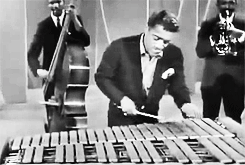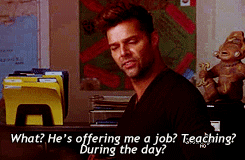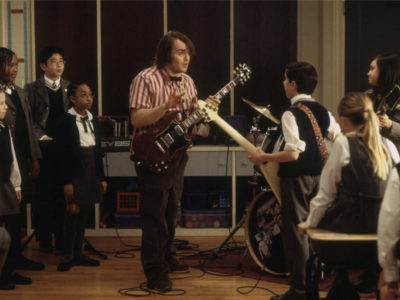“What are you going to do with that, teach?” Well actually, yes. One of the most popular concentrations within music colleges, Music Education goes far beyond teaching kids scales. Not only must you master the craft yourself, as a music educator you also help instill musical passion in your students, helping to mold the musicians of tomorrow.
What You’ll Be Doing

Music Education students study different aspects of music throughout their undergraduate studies including composing, music history and musical analysis, as well as attend recitals and concerts throughout the semester. Students in the music education major learn to teach any level of musician, from the elementary school kid banging on his first drum to the college student aspiring to become a professional.
Upsides

1.“I would say the best part about the Music Education major would be that I got to see the best of both worlds: Performance and education. I received numerous teaching opportunities and learned about many good teaching practices and techniques while also receiving many great opportunities to perform.”–Jacob Knight, University of Central Florida Recent Grad, Florida State University Graduate Student
2. “Most music education majors are able to find a job in the field directly after graduation if they want it. Other benefits would be exposure to teaching, conducting and directing a music program. You get those benefits in the performance degree, but not at the same level.”–Aaron Vaughn, Florida State University Recent Grad, High School Music Educator
3. “Taking education classes is one thing, but being able to apply the things we learn in real schools with real students and with real results is amazing. Watching [the students] grow and get better as musicians while you grow and get better as a teacher is a unique and magnificent thing.”–Jessica Loman, Florida State University Class of 2015
Downsides

1.”Music Education took up a lot of time and could be quite stressful, especially when the requirements of my applied lessons and the UCF percussion studio were added to list. Being a Music Education major can and will be very difficult and frustrating, but it will allow you the tools to have one of the best jobs in the world.”–Jacob Knight, University of Central Florida Recent Grad, Florida State University Graduate Student
2. “The worst part was that it required an enormous amount of credit hours to graduate. I didn’t have much time to take any extra classes or electives.”–Aaron Vaughn, Florida State University Recent Grad, High School Music Educator
3. “This major tends to take you over… I’ve found that making who you are the same thing as what you do can be horribly daunting, especially when you hit roadblocks. Learning your limits is important in this profession, but going through the process of learning those limits can really suck.”–Jessica Loman, Florida State University Class of 2015
Career Opportunities

1. Early Childhood Music Educator
Early childhood music educators introduce young children into the world of music and stimulate their interest. They teach students the basic building blocks of music like reading sheet music and playing their first notes on basic instruments. Teaching the basics to young children might seem like a tiresome and tedious effort, but early childhood music educators help children discover their passion for music that some carry into their college years.
2. Studio Teacher
Studio teachers interact one-on-one with students seeking to improve their musical abilities and to gain more in-depth knowledge of an instrument. Typically, studio teachers work in private studio spaces with a small cliental, which allows them to create a more intimate connection with their pupils.
3. Middle/High School Band Director
Band directors work with older students than early childhood music educators. These educators go a step beyond the basics, teaching them about performance, instrumental technique and musical theory. High school band directors also work with students in concert settings and out on the field for marching bands.
4. Music Professor
Music professors work within a college or university and mentor aspiring professional musicians. Becoming a professor requires a doctorate, but music professors reap the rewards of teaching highly talented and motivated students. Courses taught consist of music theory, sight singing, music composition, music history and world music cultures.
5. Music Consultant/Supervisor
Music consultants act less as teachers and more as mentors. They help aspiring musicians connect and sign with professional labels. They need to know how to network with music industry titans so that their clients start on the path to become the next Lady Gaga.



















